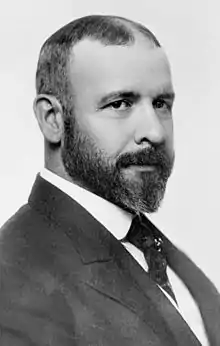National Farmers' Bank | |
 The National Farmers' Bank of Owatonna from the southwest | |
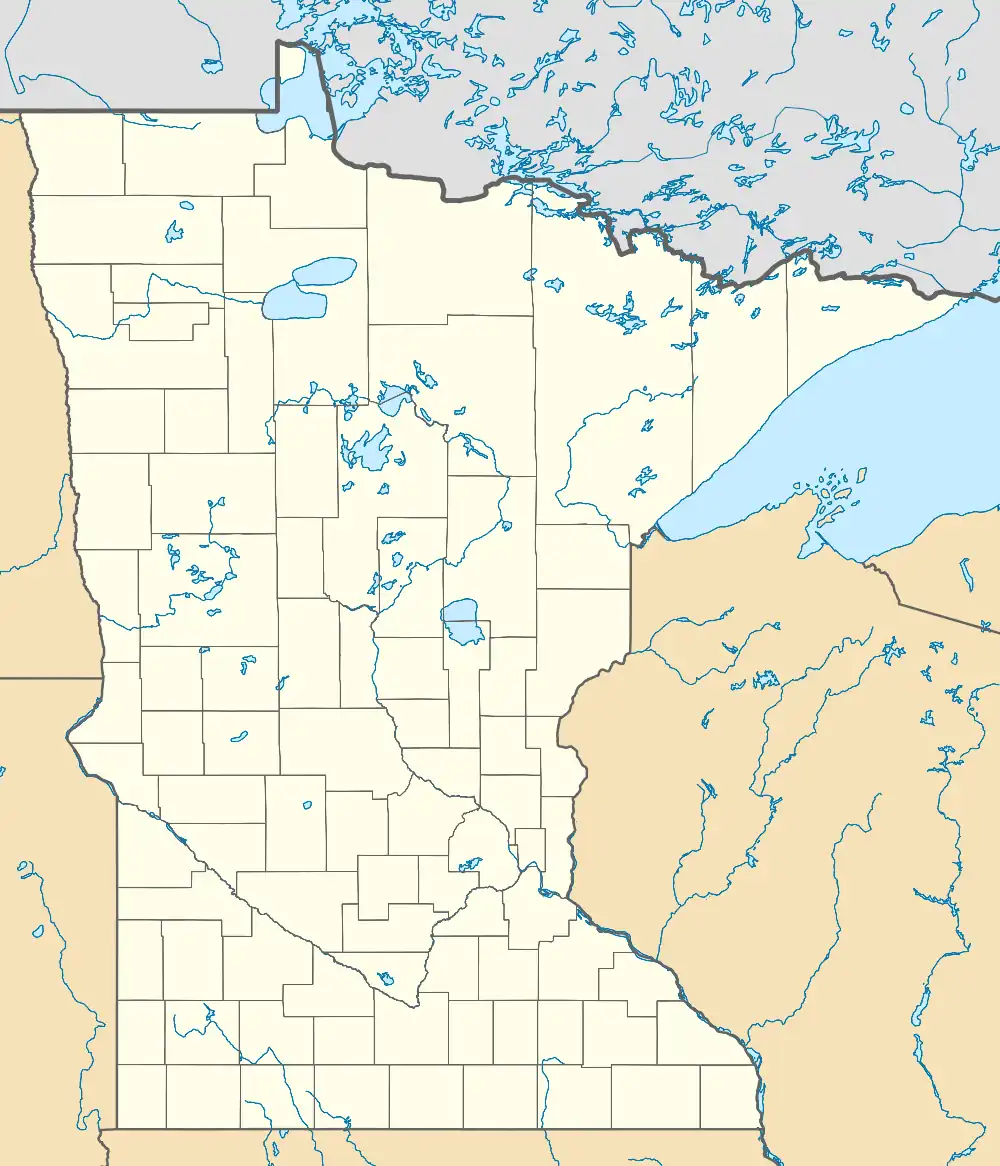  | |
| Location | 101 North Cedar Avenue, Owatonna, Minnesota |
|---|---|
| Coordinates | 44°5′6″N 93°13′33″W / 44.08500°N 93.22583°W |
| Built | 1908 |
| Architect | Louis Sullivan |
| Architectural style | Prairie School |
| Part of | Owatonna Commercial Historic District (ID14001237) |
| NRHP reference No. | 71000441[1] |
| Significant dates | |
| Added to NRHP | August 26, 1971 |
| Designated NHL | January 7, 1976[2] |
| Designated CP | February 2, 2015 |
The National Farmers' Bank of Owatonna, Minnesota, United States, is a historic bank building designed by Louis Sullivan, with decorative elements by George Elmslie. It was built in 1908, and was the first of Sullivan's "jewel box" bank designs. The building is clad in red brick with green terra cotta bands, and features two large arches on its street-facing facades. Single-story wings, originally housing bank offices, extend along each side. Internal elements include two stained-glass windows designed by Louis J. Millet, a mural by Oskar Gross, and four immense cast iron electroliers designed by Elmslie and cast by Winslow Brothers Company.[2][3]
The officers of the National Farmers' Bank sought Sullivan out, in part because they wanted a fresh idea of a bank building that would suit their specific needs, and they felt that conventional bank architecture of the time would not meet those. The building Sullivan designed included a farmers' exchange room, where its clients might do business with each other, a women's consultation room, a conference room for the bank board, and the president's office. All of these rooms were richly decorated, with custom furniture.[3]
The bank was remodeled in 1940, and many of the interior architectural elements were destroyed. Subsequent work in 1958 and from 1976 to 1981 restored it to its original grandeur. On January 7, 1976, it was recognized as a National Historic Landmark for its architectural significance.[2][3] The building now houses a branch of the Wells Fargo bank. It is also a contributing property to the Owatonna Commercial Historic District.[4]
Images
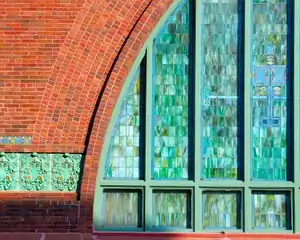 West elevation detail
West elevation detail Cartouche
Cartouche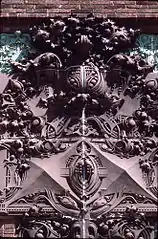 Cartouche detail
Cartouche detail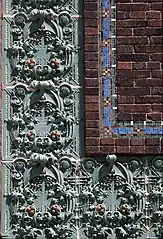 Exterior terra cotta
Exterior terra cotta Electrolier
Electrolier
See also
References
- ↑ "National Register Information System". National Register of Historic Places. National Park Service. July 9, 2010.
- 1 2 3 "National Farmers' Bank". National Historic Landmark summary listing. National Park Service. Archived from the original on April 3, 2008. Retrieved October 2, 2007.
- 1 2 3 Carolyn Pitts (July 1975). "National Register of Historic Places Inventory-Nomination: Northwestern National Bank of Owatonna / National Farmers' Bank of Owatonna" (pdf). National Park Service.
{{cite journal}}: Cite journal requires|journal=(help) and Accompanying 4 photos, exterior and interior, from 1971 and undated. (941 KiB) - ↑ Pearson, Marjorie; Renee L. Hutter; Andrew J. Schmidt (April 2011). "National Register of Historic Places Registration Form: Owatonna Commercial Historic District" (PDF). National Park Service. Retrieved May 24, 2015.
{{cite journal}}: Cite journal requires|journal=(help)
Further reading
- Millett, Larry. The curve of the arch: The story of Louis Sullivan's Owatonna Bank (1985). Minnesota Historical Society Press.
- Morrison, Hugh. Louis Sullivan Prophet of Modern Architecture. New York City: W. W. Norton & Company. ISBN 0393001164.
